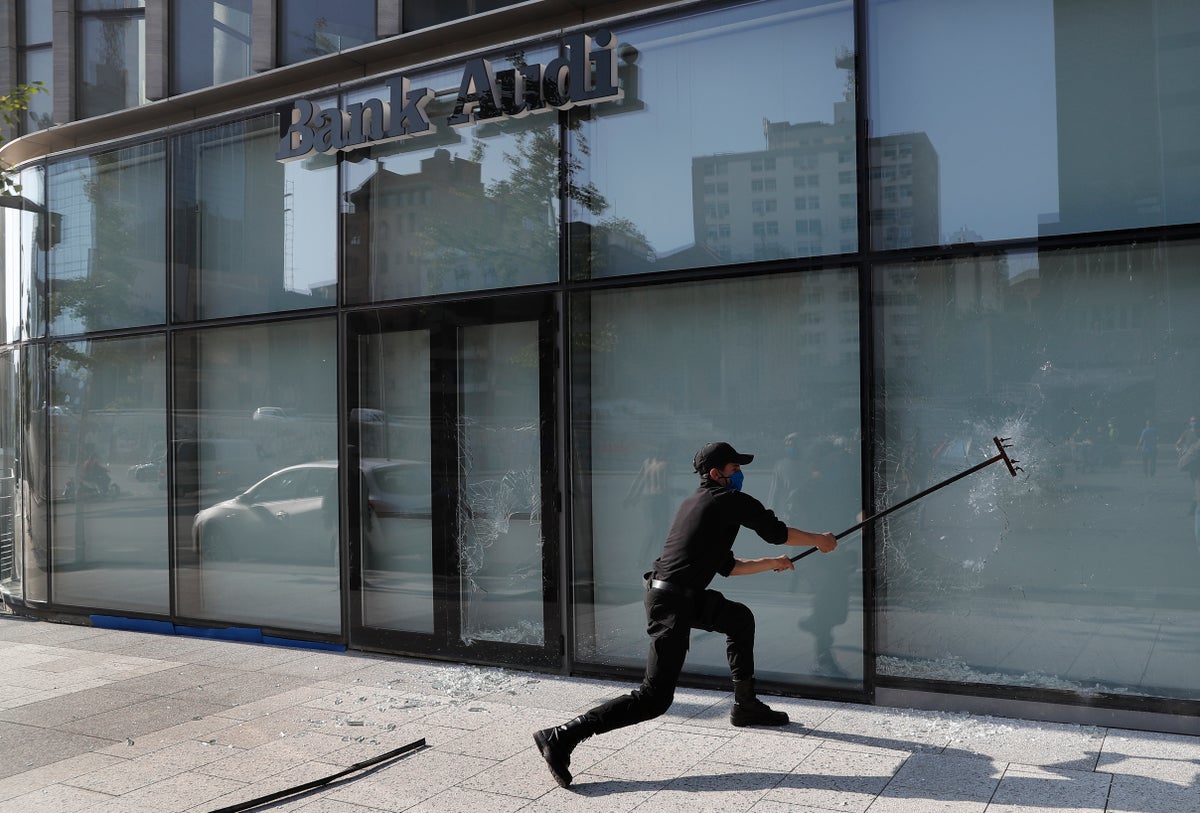
Angry protesters in Lebanon Thursday smashed windows and set tires on fire outside two of the country's biggest banks in the capital city, as the value of the local currency hit a new low and poverty deepens.
Lebanon’s economic meltdown and unprecedented financial crisis erupted in 2019 following years of corruption and mismanagement by the country’s rulers. Over three quarters of Lebanon’s population of 6 million has been plunged into poverty, and the Lebanese pound lost about 97% of its value against the dollar.
Lebanon's struggling banks, which have restricted cash withdrawals since late 2019, were shuttered for a tenth day on Thursday in what they call an “open-ended strike”, following a court case that ruled in favor of a Lebanese depositor demanding their trapped savings.
Political paralysis has also made matters worse for the country, without a president since October 2022, and only with a caretaker government with limited functions. Gas shortages and rampant power cuts have also led to the further deterioration of government services and raised worries over the crumbling of public institutions.
In less than a week the Lebanese pound's value against the dollar plummeted to a new low from 66,000 to 80,000 at the black market rate, the exchange rate used for buying and selling most goods and services in the country. There are several mobile exchange rate applications that have been the reference for the black market rate for years.
Though the country’s pegged exchange rate against the dollar was officially devalued to 15,000 earlier this month, the black market rate has reflected a more realistic market rate for years, but rapidly fluctuates with no transparency.
The value of the Lebanese pound, at times swinging in value several times daily, has led to businesses pricing their items in dollars, where customers pay in the local currency based on black market rates. Other businesses have started charging their goods and services in hard U.S. currency. Economists and residents fear Lebanon might move towards the latter, which they call dollarization.
Caretaker Economy Minister Amin Salam announced Friday a new pricing mechanism for grocery stores, where goods will be priced in dollars based on what he described as a “modest” interpretation of the black market rate.
Lebanese authorities for years have failed to curtail the black market’s hold on the currency’s value, even as they have attempted to shut down informal exchange rate websites and mobile applications.
Last month, Lebanon's chief prosecutor called for security agencies to crack down on illegal exchangers. A legal official told The Associated Press that the financial prosecutor prepared a list of dozens of black market money exchangers for the security agencies to pursue. However, after the list was leaked, the exchangers laundered their money or left the country, said the official, speaking on the condition of anonymity because they were not cleared to speak to the press.
Some exchangers turned themselves in, but were soon released given that their currency holdings were no longer in the country, the official added, while security agencies raided exchangers who ran small shops and only had “modest” sums of money.
Elsewhere, protesters tried to break into the home of chief of Lebanon's bank association, Salim Sfeir, who is also CEO of Bank of Beirut.
Protesters have accused the banks and affiliated political leaders of obstructing economic reforms and an economic recovery plan approved by the International Monetary Fund. As banks have enforced strict withdrawal limits that have locked away many people's money, some depositors have opted to break into the banks and take their own money by force. The banks in turn say the government is to blame for the financial crisis and their withdrawal limits, and say the state should bear the burden of paying off the country’s massive debts.
Also on Thursday, clashes erupted in the eastern Bekaa Valley province after the Lebanese Army raided homes of suspected drug smugglers. The clashes led to the deaths of three soldiers and three armed men from a cartel, the Lebanese military said in a statement.







